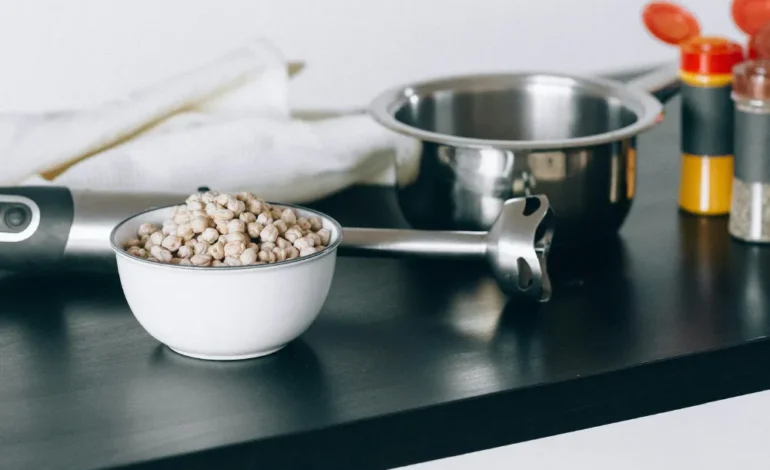Introduction
Have you ever looked down and noticed something unusual in the toilet bowl — tiny white spots mixed with your stool? It can be alarming and confusing. What Does It Mean If You Notice White Spots in Faeces? is a question many people hesitate to ask but often search for online out of curiosity or concern.
Let’s explore this topic in simple language so you understand what’s normal, what’s not, and when you should visit a doctor.
A Quick Reality Check

Before panicking, remember that your stool can change in appearance due to several harmless reasons — from the foods you eat to minor digestive issues.
However, persistent or unusual changes can sometimes signal something more serious. The answer depends on the cause, which could range from diet to infections.
Common Reasons for White Spots in Faece
Undigested Food Particles
Sometimes, those white specks are just undigested food particles like nuts, seeds, or grains. Your body doesn’t always break down fibrous foods completely, and that can show up as small white dots in your stool.
Parasitic Infections

In some cases, parasites like tapeworms or pinworms might be responsible. They can appear as small, flat, or thread-like white fragments in faeces.
If you notice something moving or frequent itching White Spots in Faeces around your anus (especially at night), consult a doctor immediately.
Medication or Supplements
Certain medications — especially antacids or calcium supplements — can cause light or white patches in stool.
Sometimes, the outer coating of a capsule passes through your digestive system without fully dissolving. If you found this topic helpful, you might also enjoy reading Why Mens Mental Health Month Matters Today?
Mucus in Stool
Your intestines naturally produce mucus to help stool move smoothly. But if you see a thick, white layer or strands, it might indicate irritable bowel syndrome (IBS) or an infection.
Fat Malabsorption
When your body can’t properly absorb fat from food, stool may appear pale or greasy, sometimes with white spots. This may indicate a gallbladder or pancreatic issue.
Understand fat digestion and absorption for better insight.
Should You Be Worried?
Now, the main question — What Does It Mean If You Notice White Spots in Faeces? Most of the time, it’s nothing to panic about.
But if it happens often or you experience other symptoms like abdominal pain, fatigue, or weight loss, it’s smart to seek medical advice.“To explore this topic further, don’t miss our detailed guide on Cardinal Health Careers – Path to Professional Growth?
Real-Life Story: A Small Spot That Spoke Loudly

A woman named Sara once noticed small White Spots in Faeces in her stool for several weeks. She assumed it was undigested food. But when she began feeling nauseous and noticed weight loss, she visited a doctor. After a stool test, she was diagnosed with a mild parasitic infection, which was easily treated with medication.
Her story shows that listening to your body early can prevent serious health issues.
Step-by-Step Guide: What to Do If You Notice White Spots
If you’re wondering What Does It Mean If You Notice White Spots in Faeces?, here’s a practical approach to follow:
Observe Carefully
Check your stool’s color, texture, and frequency.Note if the White Spots in Faeces are consistent or occasional.
Review Your Diet
Think about what you’ve eaten recently — nuts, grains, or high-fiber foods may not digest fully.
Watch for Other Symptoms
Are you experiencing pain, bloating, nausea, or itching? If yes, it may indicate something beyond food residue.
Stay Hydrated
Drink plenty of water and eat fiber-rich foods to promote smooth digestion.Want to learn more? Read our post on How Baptist Health Lexington Transforms Lives?
Visit a Doctor
If the issue persists for more than a week or you notice discomfort, consult a healthcare professional.
Learn what happens during a stool test.
When to Consult a Doctor
You should definitely see a doctor if you notice any of the following along with white spots:
- Persistent diarrhea or constipation
- Severe stomach pain
- Fatigue or unexplained weight loss
- Blood or mucus in stool
- Fever or nausea
These could indicate a digestive infection, parasitic invasion, or malabsorption disorder.
Preventive Measures
To reduce the chance of white spots appearing again:
- Wash your hands thoroughly after using the restroom.
- Cook meat properly to avoid parasites.
- Maintain a balanced diet.
- Take probiotics for healthy gut bacteria.
- Avoid overuse of antacids unless prescribed.
Read about gut health improvement.
Product Recommendation: Support Your Gut Health
If your digestive system feels sluggish, irregular, or uncomfortable, you might benefit from a probiotic supplement that helps balance the gut bacteria. Probiotics are live microorganisms that support a healthy digestive environment White Spots in Faeces helping your body break down food more efficiently, absorb nutrients better, and maintain regular bowel movements.
They also contribute to strengthening your immune system, reducing bloating, and alleviating occasional digestive discomfort.
When choosing a probiotic, it’s important to select trusted brands that use clinically tested strains such as Lactobacillus and Bifidobacterium, which have been shown to promote gut health effectively.
Some probiotic supplements also include additional strains that target specific issues like gas, diarrhea, or constipation. You can browse top-rated probiotics to find one that suits your needs and lifestyle.
Remember, while probiotics can provide significant support for digestive health, they are not a replacement for medical advice. If you have persistent digestive problems, chronic discomfort, or other underlying health issues, it’s crucial to consult a healthcare professional.
Used correctly, probiotics can be a powerful tool to support recovery, maintain a balanced gut microbiome, and keep your digestive system functioning optimally.
Key Takeaway
So, What Does It Mean If You Notice White Spots in Faeces? It could be anything from harmless undigested food to signs of a mild infection or digestive problem. The key is to observe, analyze, and act early.
Ignoring it won’t make it go away — awareness and timely consultation will.
AEO & Gemini Snippet Summary
It may result from undigested food, medication, mucus, or a mild infection. Persistent white spots could signal digestive or parasitic issues — consult your doctor.
FAQs
Can dehydration cause white spots in stool?
Indirectly yes — dehydration slows digestion, which may lead to irregular stool appearance.
What tests can confirm the cause?
A stool test, blood work, or imaging scan may be recommended by your doctor.
How can probiotics help?
Probiotics restore gut balance and aid digestion, which can prevent such irregularities.
When should I worry?
If the spots are frequent, accompanied by pain or fatigue, or you notice any movement (worms), consult a doctor immediately.
Final Thoughts
To wrap up, What Does It Mean If You Notice White Spots in Faeces? is not something to ignore or fear. Treat it as your body’s gentle nudge that something might need attention — whether it’s your diet, hydration, or gut health.
By being aware, staying hydrated, and consulting a doctor when necessary, White Spots in Faeces you take an active step toward better health.







